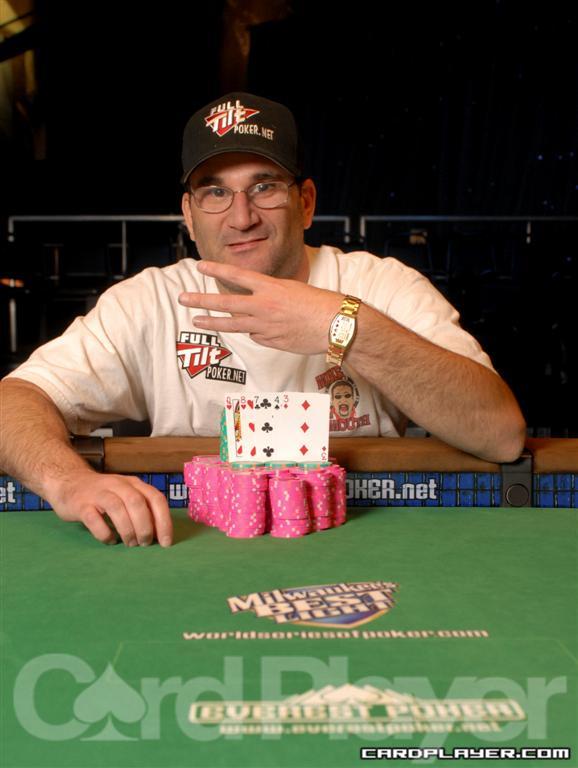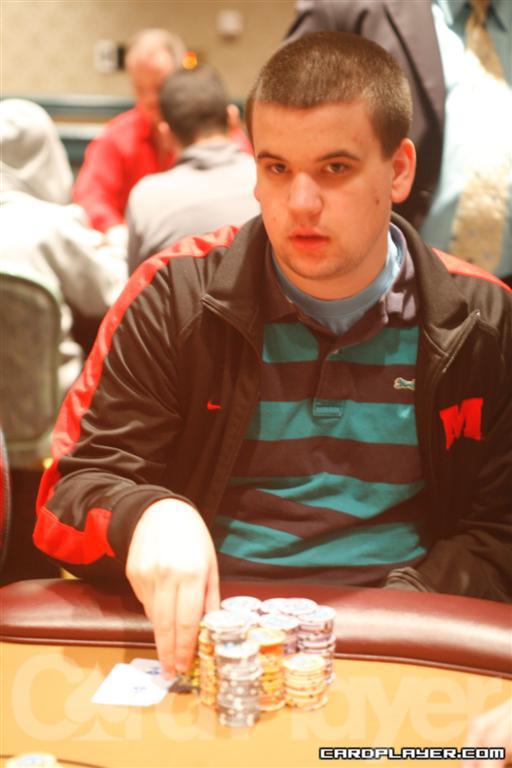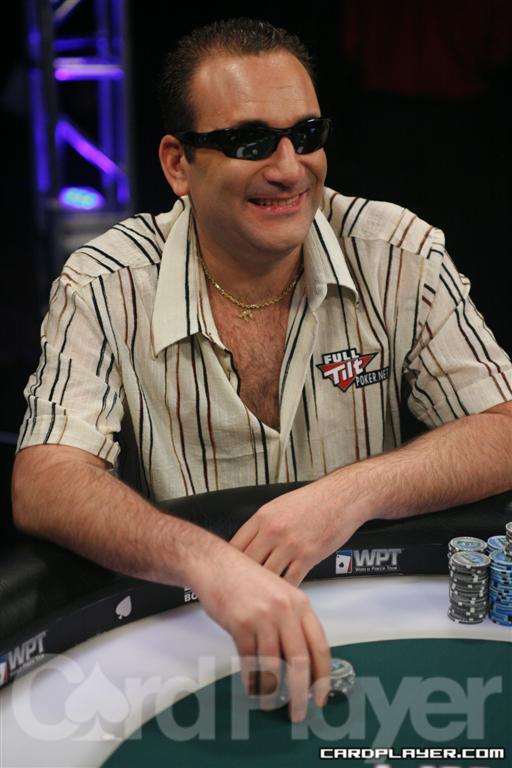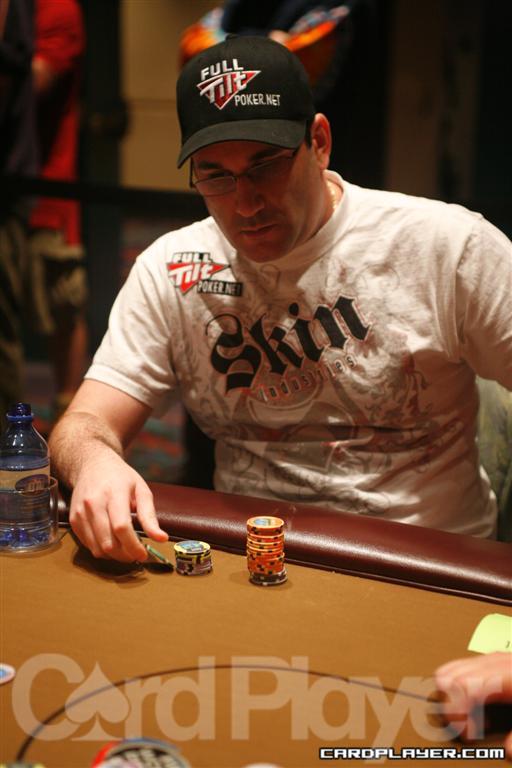






What's My Line? -- Mike MatusowMatusow Folds a Set on Day 2 to Survive |
|
|
 Ever since the new and improved Mike Matusow replaced “The Mouth,” the tournament trail has been slightly quieter, but only because Matusow has chosen to let his results speak for themselves.
Ever since the new and improved Mike Matusow replaced “The Mouth,” the tournament trail has been slightly quieter, but only because Matusow has chosen to let his results speak for themselves.
In 2007, Matusow made two World Poker Tour final tables, scoring nearly $1 million for his performances at Borgata and Bellagio.
Matusow tore apart the World Series of Poker this summer, winning a bracelet in event No. 18 for $537,862 and then making another final table in event No. 37, pocketing another $138,062. In the main event, he made yet another deep run, finishing in 30th and taking home another $193,000.
Recently, Matusow final tabled the 2008 Foxwoods World Poker Finals, finishing in sixth place and earning $124,048. Card Player caught up with Matusow in Connecticut to discuss his big laydown on day 2 that boosted his confidence and propelled him to the final table.
| Event - Blinds/Antes | World Poker Finals | 800-1,600 with a 200 ante |
| Player | Mike Matusow | Christian Harder |
| Chip Count | About 93,000 | About 62,000 |
| Hand | 9 9 9 |
K J J |
The Hand

 10
10 9
9 , and Matusow bet 6,500.
, and Matusow bet 6,500.
The big blind folded, and Harder called. The turn was the 2 , and Matusow bet about 18,000. Harder then moved all in over the top for an additional 31,000.
, and Matusow bet about 18,000. Harder then moved all in over the top for an additional 31,000.
Matusow, who had approximately 61,000 in chips behind, went into the tank, saying, “Look at this kid. Not even a sweat. He doesn’t look scared at all.”
After a few more minutes, Matusow mucked his 9 9
9 face up, and Harder graciously showed his K
face up, and Harder graciously showed his K J
J for the flopped nut straight.
for the flopped nut straight.
The Interview
Julio Rodriguez: Mike, care to take us through the hand you played on day 2 against Christian Harder?

It was a pretty draw-heavy flop, so I led out for 6,500. The truth of the matter is that he misplayed his hand. If he had raised me on the flop, I probably would’ve gone broke. But he flat-called, which told me he could’ve had a hand like J-10 or the flopped nuts. If he had a set, he would have for sure raised, since it was such a draw-heavy flop.
When the 2 rolled off, I fired a big bet to price out any possible draws, and he moved in on me. It was actually a pretty easy read that he flopped the nuts for a few reasons. If he had a better set, there is no way that he would’ve let me see a turn card without putting in a raise. At least, I’d never play it that way.
rolled off, I fired a big bet to price out any possible draws, and he moved in on me. It was actually a pretty easy read that he flopped the nuts for a few reasons. If he had a better set, there is no way that he would’ve let me see a turn card without putting in a raise. At least, I’d never play it that way.
So that leaves two possibilities: Either he flopped the straight or he was losing his mind with a pair and a straight draw. I tanked for a few minutes and started asking him questions. He smiled back at me and looked so confident that it became more and more apparent that he had it.
JR: Other players made comments that you should have called even though you knew you were behind because of the math.

[Harder] tried to tell Daniel [Negreanu] that it was a terrible fold, but Daniel agreed with me. With these young kids, it’s always pot odds and what-have-you, but they don’t understand that tournament poker is different. You can’t rebuy, so whether you are getting 3-1 or not shouldn’t matter. Two times out of three you will be out of the tournament.
JR: So tournament life supersedes the math involved with the hand?
MM: It’s not even close. Tournament survival is way more important than the math. From that point, I was able to chip back up and move onto the next day. I ran good for two days, and I even held the chip lead at a few points. That wouldn’t have happened had I played it straightforwardly and possibly gone bust with that set.
